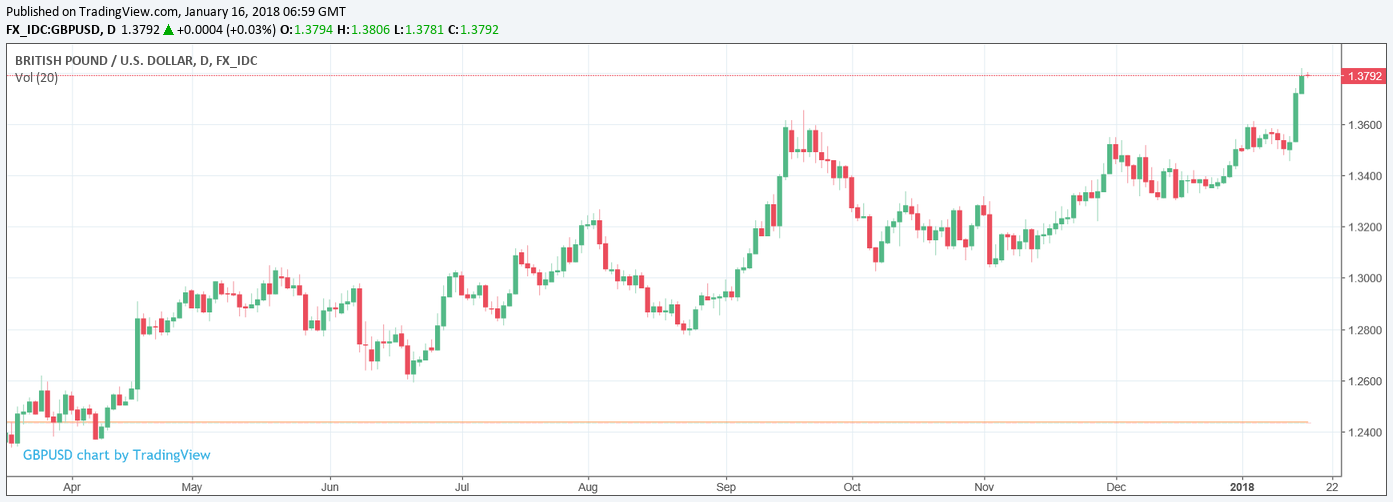UK Inflation Data is a Win-Win for GBP

UK inflation data for December read at 3.0% - exactly what markets expected and Sterling has held its advantage as a result.
Pound Sterling's solid run was granted an extension after UK inflation read at 3.0% in the month of December, a shade softer than November's 3.1%, but in line with analyst forecasts.
When data meets analyst expectations it tends to have a neutral impact on Sterling which ensures recent trends remain in place.
Thus we are seeing the Pound-to-Dollar exchange rate trade near 18-month highs at 1.3767 and the Pound-to-Euro exchange rate hold its daily gains at 1.1255.
The ONS reports the downward effect to UK prices came mainly from air fares, along with a fall in the prices of a range of recreational goods, particularly games and toys.
The downward contributions were partially offset by an increase in tobacco prices, reflecting duty increases that came into effect following the Autumn Budget, along with an increase in petrol and diesel prices.
"The fall-back in CPI inflation from 3.1% in November to 3% in December marks the beginning of what we expect will be a sustained downward trend over the course of this year," says Paul Hollingsworth, Senior UK Economist with Capital Economics in London.
Whatever the case, news that price rises might have peaked will be welcome news to consumers who have seen their pay rises outstripped by rises in prices over recent months. Indeed, should inflation continue to fall in 2018 then the standing of the consumer will likely improve, particularly if wages increase as widely expected.
Inflation data appears to be a double-edged sword for the Pound - a stronger consumer is certainly good for the Pound, while rising inflation is also good for the Pound in that prompts interest rate rises at the Bank of England. In short, the data was always likely to be something of a win-win for the currency.
Hence, looking at the headline inflation number could be misleading - we suspect what markets are really interested in is the core inflation number which is essentially inflation generated by wage pressures and organic economic growth.
Core inflation read at 2.5% in December, down from 2.6% in November. If we see this figure nudge higher in forthcoming inflation releases we would certainly expect the Pound to react more aggressively.
"The (Bank of England's) MPC is unlikely to feel pressured into raising rates again very soon. Indeed, barring a big pick-up in wage growth in next week’s labour market figures, there is little in the latest economic data to justify another rate hike at the MPC’s meeting on 8th February," says Hollingsworth.
The Pound's recent rise against the Dollar has seen it move up to 18-month highs at the start of the trading week, reaching a peak of 1.3820 on Monday, largely as a result of broad-based Dollar selling.
The Dollar has come under pressure as inflation increases across the world, forcing central banks to consider raising interest rates. Higher rates tend to lead to higher currencies ensuring global currencies are finding support at a time when the US Federal Reserve is not expected to increase the rate at which it raises interest rates in 2018 and 2019.

Get up to 5% more foreign exchange by using a specialist provider to get closer to the real market rate and avoid the gaping spreads charged by your bank when providing currency. Learn more here.




